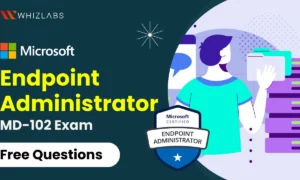A CISSP certification or a Certified Information System Security Professional certificate is an advanced accreditation level that involves knowing a lot about information security. It’s a globally recognized certification that helps you define the controls, architecture, design, and management of highly secure environments.
If you’re interested in achieving this certification, keep reading below to understand how you can achieve the prerequisite and knowledge necessary to pass this test.
Certification Requirements
Before deciding to take the CISSP exam, it’s essential to understand if this is the right option for you. There are plenty of CISSP training courses on the Internet, but they won’t do you any good if they don’t fit the job you have or want in the future. Look into these essential areas before giving the CISSP exam a shot:
- Must have 5 years of work experience in two or more of the eight domains of CISSP
- Either a bachelor’s degree in a related field or four years of equivalent work experience.
- Work experience can be reduced if you hold an (ISC)2 certification.
- It’s recommended to clear the primary level of the CCNA, CEH, CompTIA Security+, CISA, or CISM before attempting the CISSP because it will be easier to complete.
- Professionals who are Network and Security Architects, Security Consultants or Managers, Security Auditors, or IT Directors can also take this test.
The CISSP Domains
Let’s take a look at the eight domains that will appear as topics on the test. Successful candidates must be competent in 2 or more of them to pass the test.
- Security and Risk Management: Includes the fundamentals of security policies, regulations, ethics, compliance laws, and threat modeling.
- Asset Security: Involves learning to deal with the protection and collection of assets like devices and data,
- Security Engineering: Heavy focus on security models, architecture, physical security, and cryptography.
- Communication and Network Security: Consists of network structures, security measures used to achieve the CIA (confidentiality, integrity, and availability) in organizations and transition methods.
- Identity and Access Management: Primarily about identification, access control, authorization, and countermeasures.
- Security Assessment and Testing: Includes learning how to test if something goes wrong, which involves security control assessment, audits, and testing reports.
- Security Operations: Focuses on logging and monitoring, investigations, change management, and disaster recovery.
- Software Development Security: Consists of security that encompasses the development lifecycle like Spyware, Malware, API, SQL, and social engineering attacks.
It’s essential to study all of these topics thoroughly to do well on the CISSP test.
Benefits of Becoming CISSP Certified
There are several reasons to become CISSP certified, including achieving one of the most sought-after certifications in information security. Due to it being sought-after, you will make an average of $131,000 per year, with the salary hike being higher than in most other tech industries. You will also understand all aspects of cybersecurity.
Important Information About the CISSP Exam
Developed by the International Information Security Certification Consortium, the CISSP exam is a straight forward online or in-person exam. However, it can take up to 6 hours to complete.
- The exam costs 700 dollars, and you’ll need to pay this again if you fail.
- In 6 hours, you’ll need to answer 250 questions.
- The questions consist of multiple-choice only.
- To pass, you need a minimum score of 700 out of 1000.
- The questions on the exam are spanned over the eight domains.
To get ready for this test, it’s crucial to start studying early (at most 3 months before the exam date). It’s also preferable that you have a background in other areas of IT because that knowledge will come in handy during the test.



































